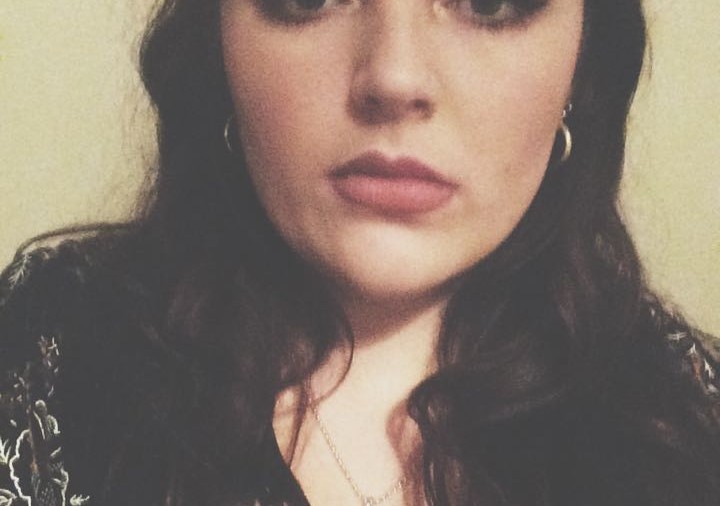In challenging the stigma associated with mental illness, I’ve vowed to be as open and honest about my very real battle with it. I should not be ashamed, although it does make me want to crawl into a corner and hibernate sometimes that my brain’s wired a bit funny. The people who judge me on speaking up about it aren’t worth my attention, because the more stories I read about mental illness, the more I feel like I’m part of a great #squad, where solidarity and frankness are our endgame and we can help out those who need it most.
I suffer from depression and anxiety co-morbidly, which makes me feel a bit like I’ve drank fifteen vodka Redbulls at once. My mood is in a constant limbo, oscillating between feeling too much and being overwhelmed and feeling nothing and a kind of numbness washing over me. For example, when my anxiety is at its most heightened I’ll feel an inexplicable butterfly feeling in my stomach and my chest will like its clawing at itself. I’ll have a compulsive urge to seek reassurance in others – “Have I upset you/Is everything going to be okay/Have I done something catastrophic and ended the world” – which, believe me, is as frustrating for me as I imagine it is for my friends and family. As someone who naturally enjoys both being alone and being with people, although the former often wins, the anxiety forcing me to lean on others like a crutch is humiliating. I become scared to leave the house or even, really, speak to anyone in case what I say offends them or I say something stupid (which is highly likely irrespective of this because I do have a tendency to engage my mouth before brain). The feeling of dread and the reason behind it which is somehow undetectable feeds into my feelings of depression.
I’ve always said and perhaps I’m a masochist or an idiot or most likely, both concurrently, that I would rather experience my depressive episodes ten millions times over than my anxious ones. Depression is being devoid of energy and desire and therefore, whilst maybe having a cry and a suicidal thought or two, I can lie in bed and watch Girls and worry about leaving my room another day. Anxiety sends my mind into overdrive, I’m exhausted, I’m convinced something terrible is going to happen and I feel physically sick.
Both my anxiety and depression mean I am the least confident narcissist in the world. What I mean by that is I find is my mental illnesses to be highly introspective and they oxymoronically operate together, even though they are complete opposites. One creates a feeling of over-stimulation, the other a feeling of total apathy. I spend a lot of time trying to gauge what other people think about me, but I definitely care too much what others think of me. I am thinking about how I can make this internal pain easier for myself, whilst thinking how much better off the world would be without me. On a less existentialist scale, I am thinking about all the things I need to do and lying awake at night tossing and turning, but come morning I have morphed into a sloth and am lucky if I brush my teeth some days.
A few months ago and this was maybe naïve, but I thought I was over the worst of it. I was mostly attending university, my medication was working brilliantly and I functioned like a semi-normal human being. Mental illness is not unlike a dormant volcano and has the potential to erupt its shitness all over you at any given moment. This time, unlike the other times, I felt the depression the most. Normally, my anxiety is worse but on the plus side (doesn’t this sound like an awful Russian roulette!) I can kind of live my life and attempt to make wry observations about things and channel my frenetic energy to disguise the fact that, like most of us, I can’t navigate the world. Fluoxetine, the third time lucky of my meddling with SSRIs, coupled with the beta-blocker Propranolol, seemed to be a beautiful harmonious duo. But now, my depression has reared its ugly head and often I feel completely zapped of energy. That’s okay though, it doesn’t mean I’ve lost the war – just this battle.
I think the worst thing you can tell a depressive or, albeit, anyone with a mental illness is that there’s a cure and they can “get over it”. That might sound so cynical, but what I mean to say is you can manage mental illness. To tell someone there’s a cure, and it might all go away, undermines the very real possibility that it might reoccur. What is most important, I believe, is to encourage people that they don’t have to live by day expecting it to come back whilst giving them the tools to cope if it does. To paraphrase The West Wing, it’s okay to fall down the hole again and be the friend who helps another out of the hole that they may fall down, because you know how to help them out. My depression might have come back, but if I give up the hope that I can get out of the hole, that’s when I’ve lost the war.
Lucy Atkinson

